Redefining Recruiting
Streamlining recruiting by creating an all-in-one ATS system to communicate with and organize candidates.

The Problem
Recruiters often manage multiple platforms for various parts of the hiring process, including applicant tracking, interview scheduling, and candidate communication.
This scattered approach makes it harder to stay organized, increases the risk of missing important details, and can delay communication, ultimately impacting the overall quality and efficiency of the hiring process.
My Role
Product Designer, Brand Designer
Skills
Brand design, UX strategy, Prototyping
Team
Sabrina Virtusio – Creative Director
Dong Tran – Director of Operations
Ashley Luna – Client Success Manager
(Also, yes we know Catalist is spelled Catalyst 😜)
Catalist’s Solution
We created a comprehensive platform that brings together all of a recruiter’s daily tasks into one unified, seamless solution. By centralizing these processes, the platform aims to improve efficiency, reduce manual effort, and ensure a smoother, more organized recruitment experience for both recruiters and candidates.
Understanding the User
During interviews with clients, hiring managers reported inefficiencies from juggling multiple tools, citing confusion and inconsistent team adoption due to the need to train on several platforms.
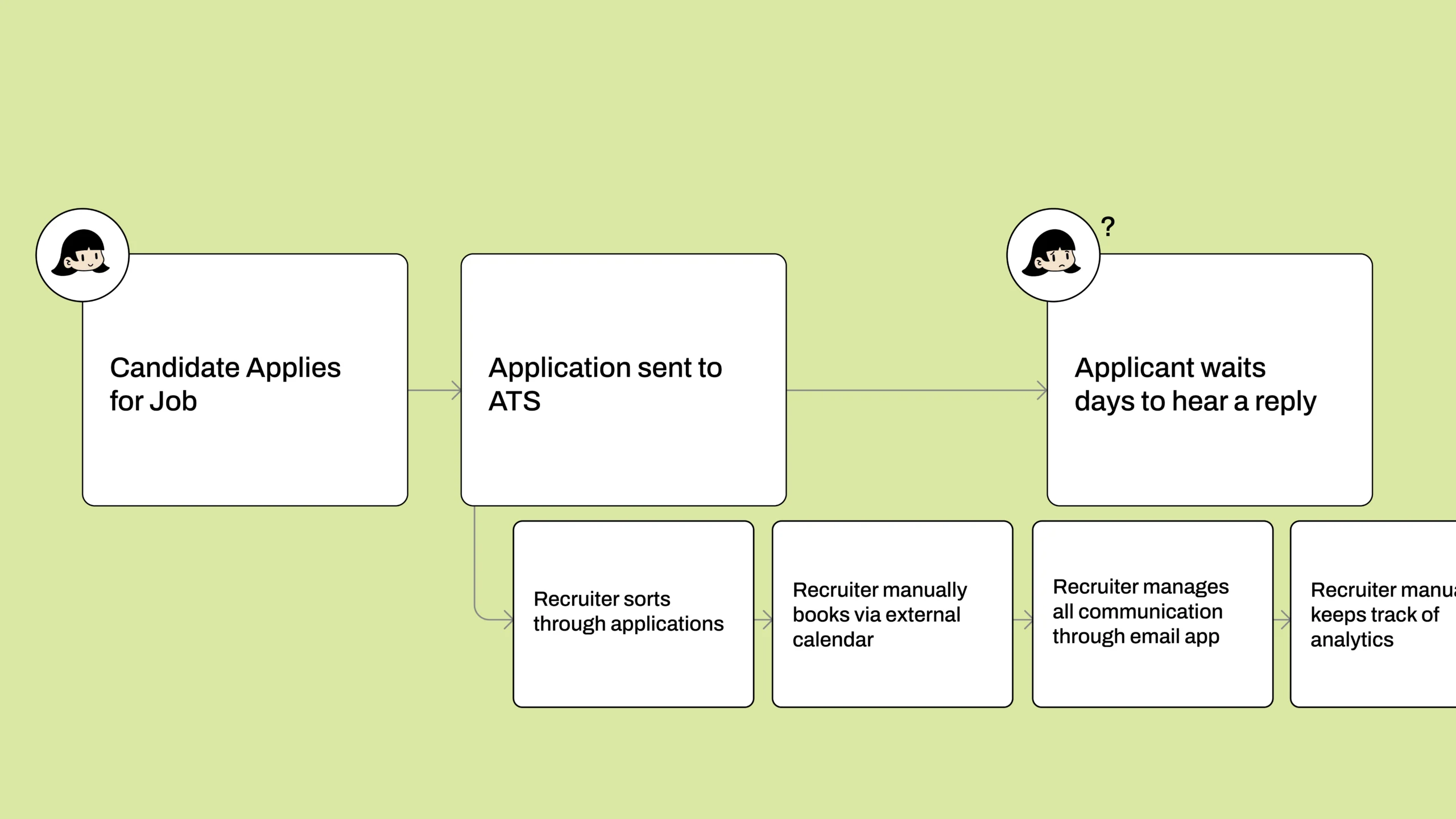
This fragmented approach not only wastes time but also increases the risk of gaps in the recruiting process, whether it’s missing candidate communications, delayed interview scheduling, or unorganized candidate data. The lack of integration between these platforms creates a disjointed experience that hinders collaboration and slows the overall hiring process, making it difficult to maintain a seamless workflow.
Key Pain Points
Too many platforms!
Recruiters are frequently forced to use several different tools to handle various aspects of the hiring, leading to inefficiencies and delays in the hiring process.
Candidate Sourcing and Engagement
Recruiters often struggle with identifying qualified candidates and then keeping them engaged with timely updates, feedback, and personalized communication. Poor candidate experience leads to high drop-off rates.
Recruiters can’t recruit
Recruitment involves a significant amount of administrative work. These tasks can take up a substantial portion of a recruiter’s day, leaving less time for high-value activities like relationship-building, interviewing, and strategic planning.
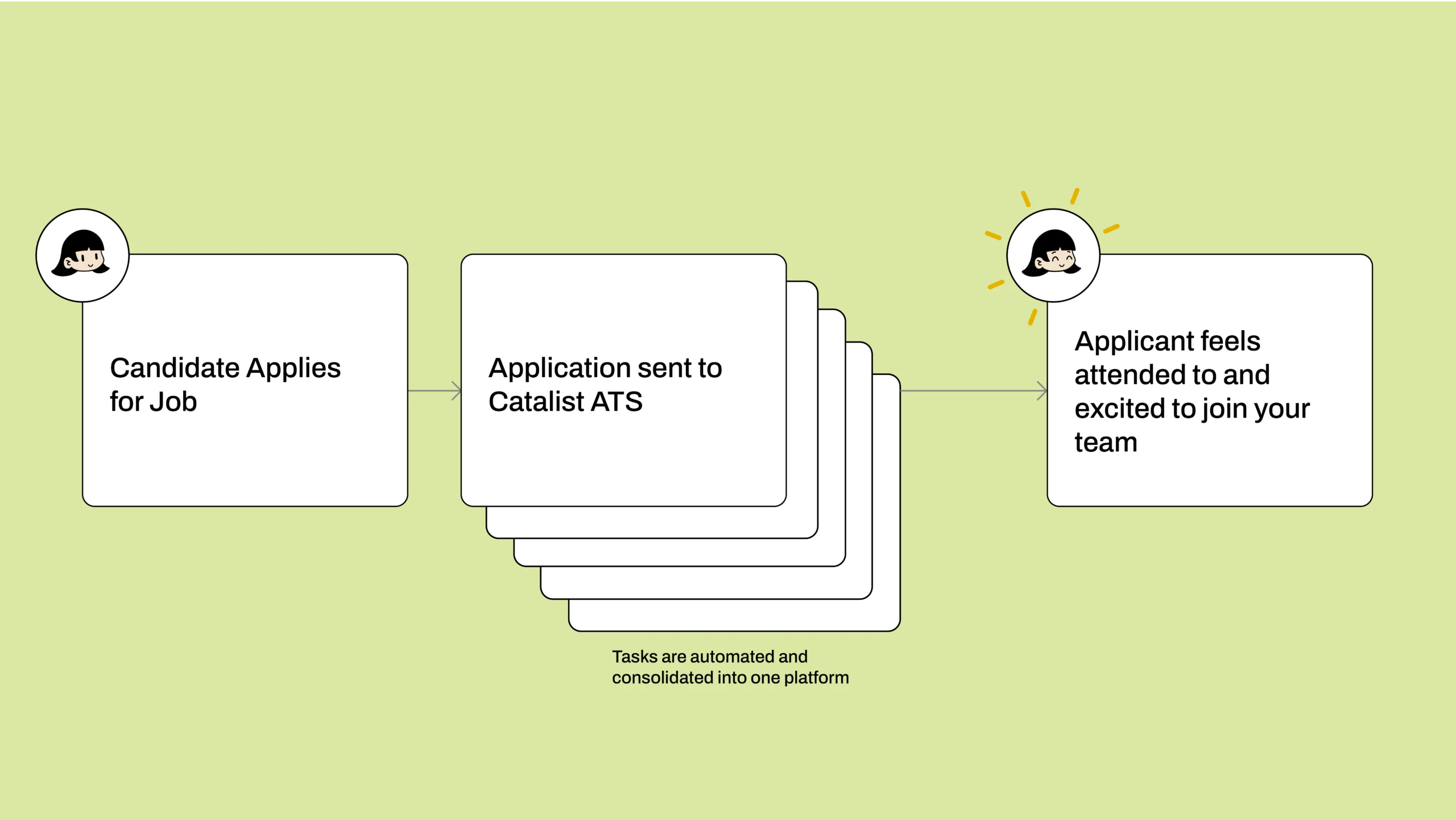
Who We’re Designing For

Carla the Corporate Recruiter
Senior recruiter at a mid-sized tech consultancy. Handles 30–40 roles per quarter across various departments.
Goals & Needs:
- Centralize candidate data and streamline communication with hiring teams.
- Automate reminders & notifications (e.g., interview scheduling, follow-ups).
- Gain visibility into hiring pipeline health and time-to-hire metrics.
Pain Points:
- Losing track of candidate progress across tools.
- Difficulty reporting accurate status updates to hiring managers.
- Manually tracking deadlines and interview scheduling is error-prone.

Taylor the Passive Candidate
Mid-career professional occasionally exploring new opportunities.
Goals & Needs:
- Understand where they are in the process and what comes next.
- Receive timely responses, especially direct messages about interest and next steps.
- Have the ability to ask questions and feel informed.
Pain Points:
- Uncertainty after applying: “Did they get my resume?”
- Long silent periods with no updates.
- Clunky scheduling tools; multiple email back-and-forth.
As a designer, I need to recognize workflow inefficiencies, create a unified recruiting platform, and measure success through faster hiring and better candidate experiences.
Creating a Blueprint
Bringing multiple platforms together into a single system can be complex and overwhelming. To simplify the process, I developed a wireframe that outlines the key touchpoints for both recruiters and our team, highlighting the necessary steps and interactions throughout the process.
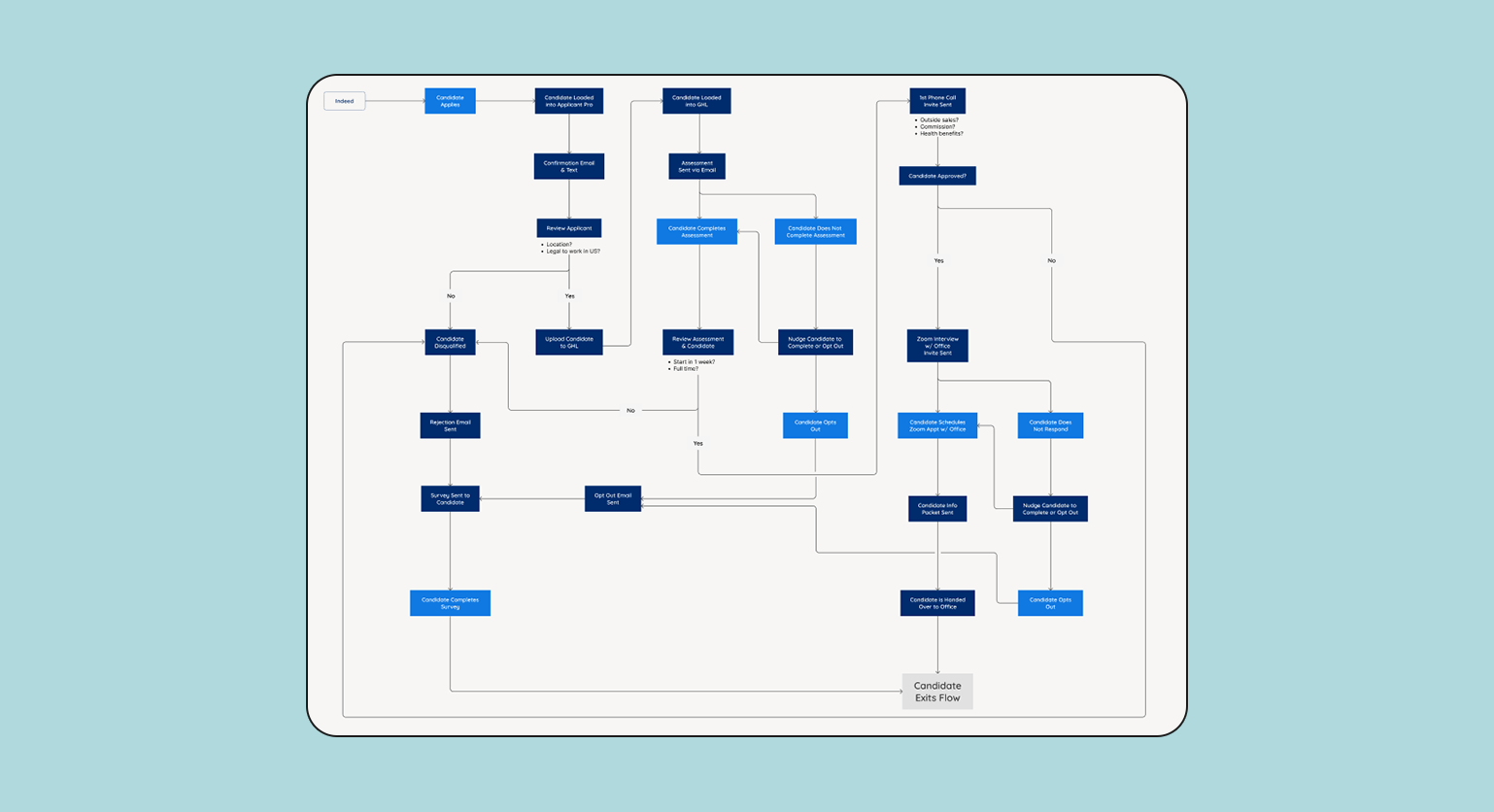
Learning from Existing Platforms
To understand what works best in application, I take a look at similar existing ATS brands. I take note of common features across the board and features that Catalist can capitalize on.
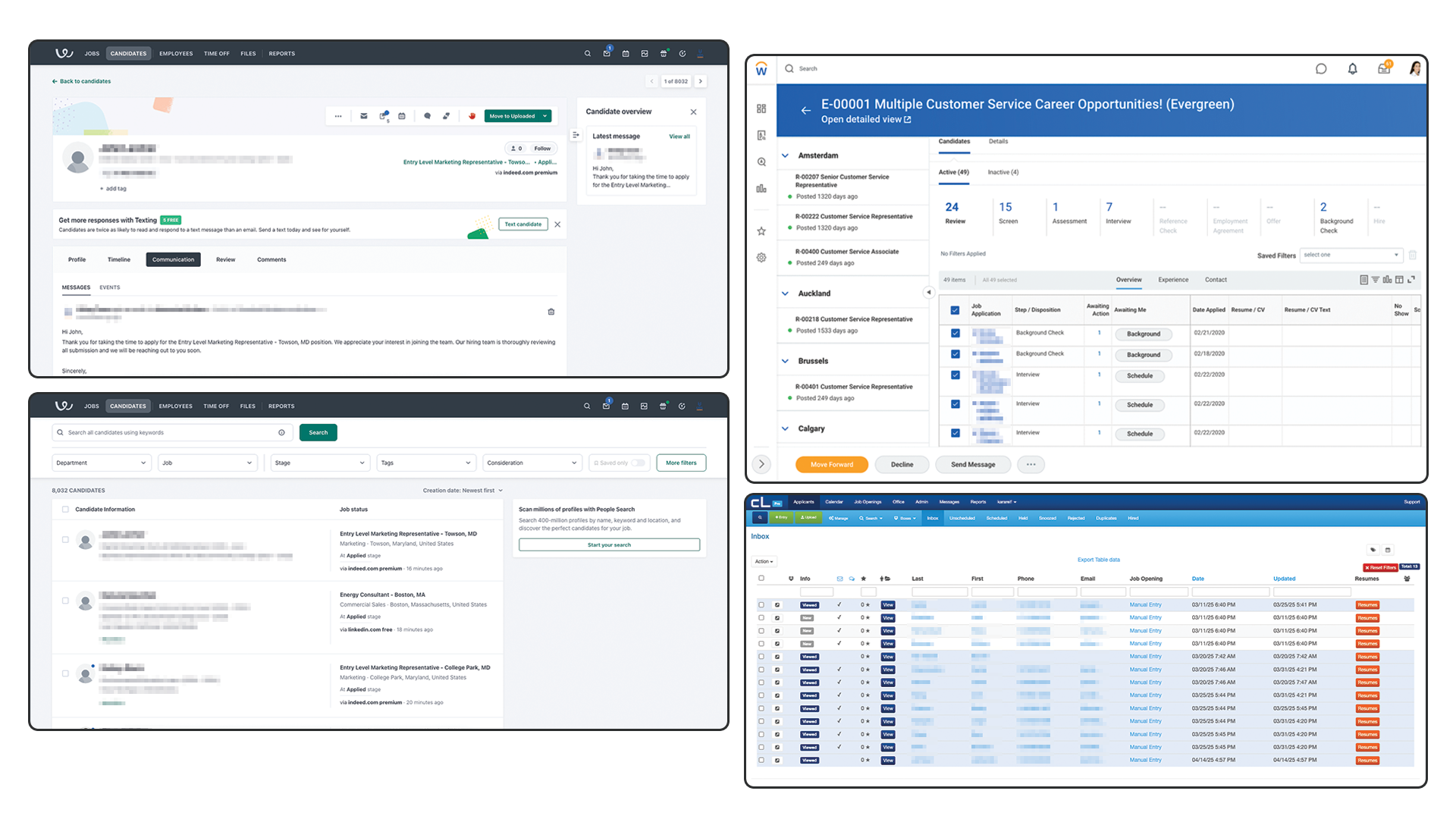
Develop an MVP
As a small team, our resources are limited. Our platform currently uses an existing CRM system as our foundation. However, we are small but mighty. Within just six months of our inception, we successfully developed and launched an MVP. In this system we focus on answering our user’s pain points.
Keep track of all applicants and their resumes
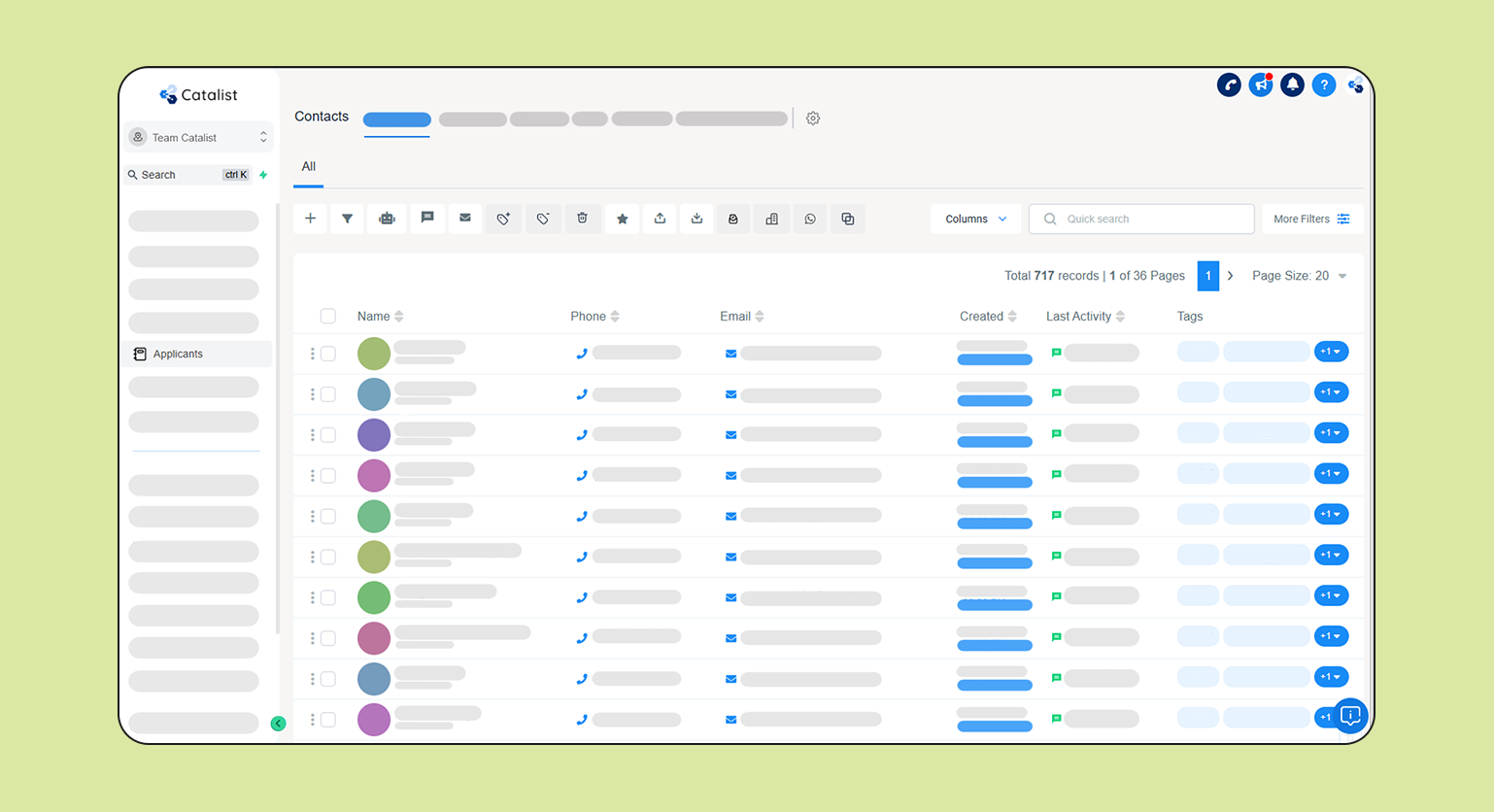
Automated or manual communication via text or email using Catalist
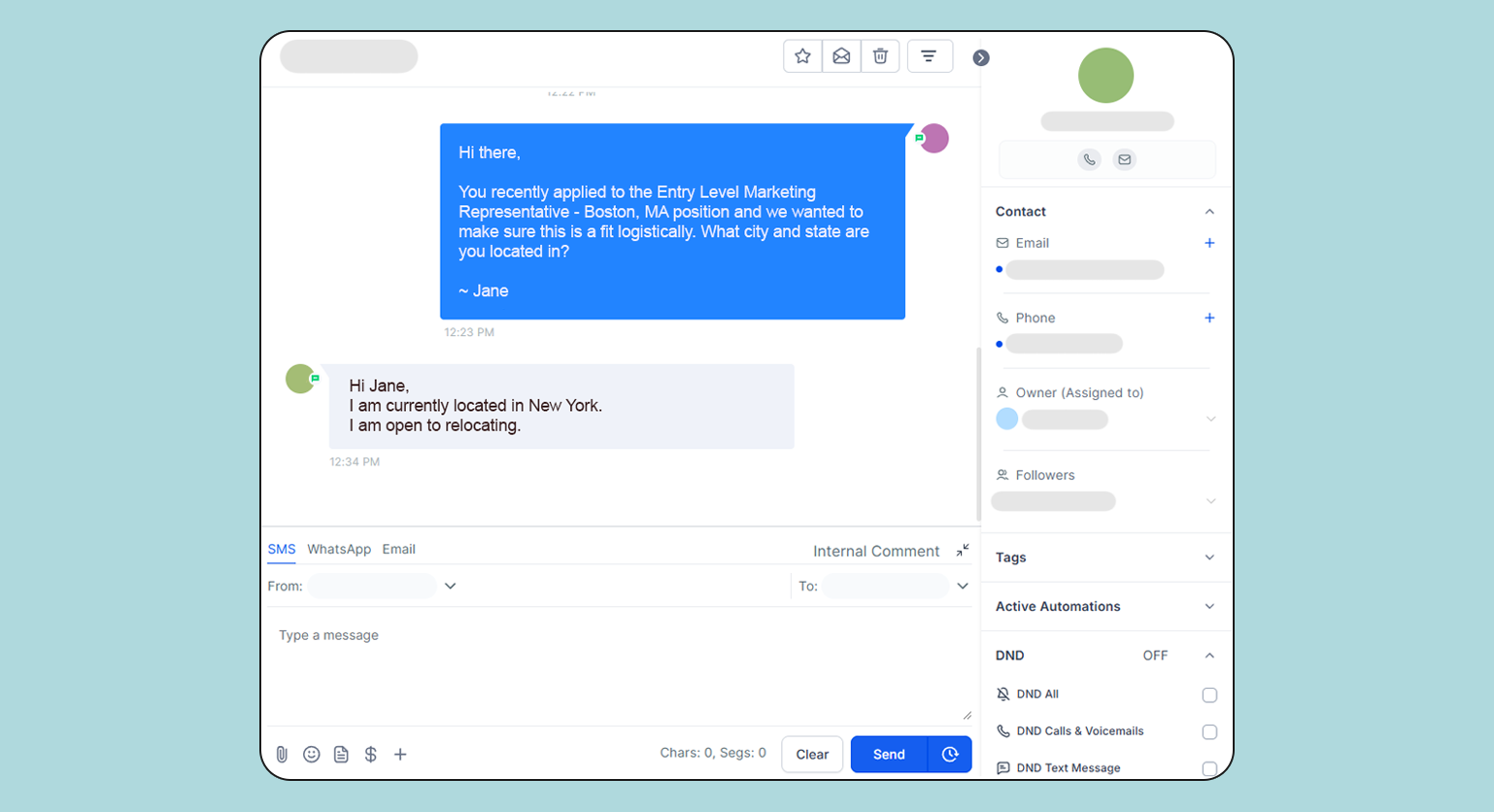
Automated booking of interviews, laid out on your Catalist or personal calendar

The Impact
10+ Active Clients
Within the first quarter of launch
Since our Q1 2025 launch, we’ve brought over 10 clients onto our platform, each achieving meaningful results.
↑198%
In interview bookings
One of our clients saw nearly triple the number of interview bookings compared to the previous year.
↑183%
Showed to interview
Not only more bookings, but interview attendance has gone up 183%, helping clients convert opportunities into hires.
Lessons Learned ˚⟡ ࣪ ˖
🪴 Build products meant to be scaled
Designing with scalability in mind prevents unnecessary time-consuming work later. Looking back, I wish I had centered my thinking beyond MVP and anticipating future growth. Scalable products not only grow with the business but also create a smoother path for continuous iteration.
🤓 Keep that student mindset at all times
Approaching every project as a learner, asking questions, seeking feedback, and experimenting keeps ideas fresh and solutions innovative. By treating setbacks as a lesson, I’ve discovered that keeping an open mind to learning new skills (eg. creating automations using APIs and webhooks) not only sharpens my current skillset but also fuels adaptability in fast‑changing environments such as start-ups.
💪 Be prepared to wear many hats
By embracing tasks beyond my job title, from customer relations to automation setup, our tiny team launched an MVP in just three months, onboarded our first 10 clients immediately post-launch, and built a strong foundation for scalable recruiting workflows. Such is the way of the start-up worker.